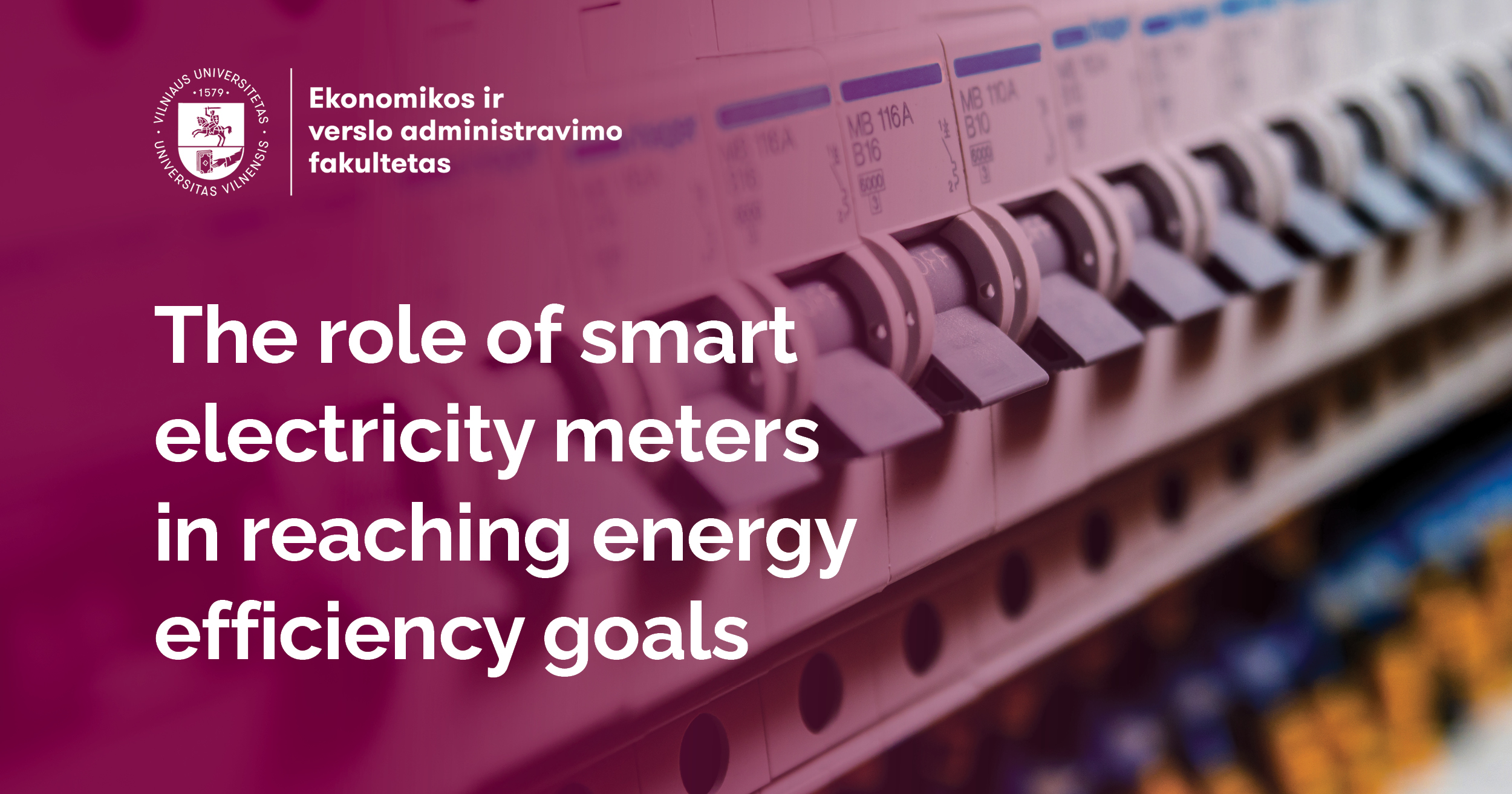The role of smart electricity meters in reaching energy efficiency goals
Smart electricity meters will soon reach households living in Lithuania. For households who consume more than 1,000 kWh of electricity per year AB ESO (a national Lithuanian electricity and gas distribution company) will start installing new electricity meters already in the first half of 2022 and will end in 2025. The total investment value of this infrastructure project will reach up to 150 million euros. But will smart meters and additional information that they will provide about electricity consumption enable Lithuanian households to save electricity? By using data of the pilot experiment implemented by AB ESO in 2017, associate professors Jūratė Jaraitė-Kažukauskė and Andrius Kažukauskas as well as doctoral student Fissha Asmare, all from the Faculty of Economics and Business administration of Vilnius University, published a study on this topic in the prestigious scientific journal – Energy Economics.
By using a randomized experiment, the study finds that the availability of descriptive hourly electricity information provided on web portals reduces electricity consumption by about 8.6%. This effect is equivalent to an annual energy saving of 241 kWh per household. In addition, the results revealed that the largest reductions in electricity consumption were made in households with high energy consumption. On the other hand, the availability of descriptive hourly electricity information did not have any effect on households with low electricity consumption. This finding might suggest that the provision of personalized information about electricity use might not encourage households experiencing energy poverty to reduce their electricity consumption as these households might already use electricity below the subsistence consumption level.
The study also identifies groups of households to which energy policy makers and energy companies should pay more attention in order to successfully achieve energy savings goals. The study shows that the impact of providing detailed and up-to-date information about households’ electricity consumption was more pronounced for households living in rural areas and detached houses. Finally, persistency analysis revealed that, on average, the treatment effect was persistent for the duration of the experiment.
The results and implications of this study are important for implementers of smart meter projects and energy policy makers not only in Lithuania but also in other countries worldwide. Increasing energy efficiency and reducing the impact on climate change is one of Lithuania's most important priorities in the field of energy. Lithuania has implemented several national and EU-wide policies aiming to reduce reliance on energy imports, energy-related pollution, and improve energy efficiency in the residential sector and in the economy as a whole. For instance, in June 2018, the Lithuanian Parliament approved the National Energy Independence Strategy, which reflects the key focus areas for Lithuanian energy policy – namely to achieve energy independence, energy security and deep decarbonization at an affordable cost. Regarding energy efficiency, Lithuania has committed to contribute to the EU's 2030 energy efficiency target by ensuring that primary and final energy intensity is 1.5 times below the 2017 level by 2030. Saving energy and reducing carbon footprint are the key factors in implementing the European Green Deal and making the European Union the first climate-neutral region. The study concludes that non-price information measures can be effective in helping to achieve these goals.
You can read the study by clicking on the following link: https://authors.elsevier.com/a/1e30pW3fcodzf.
